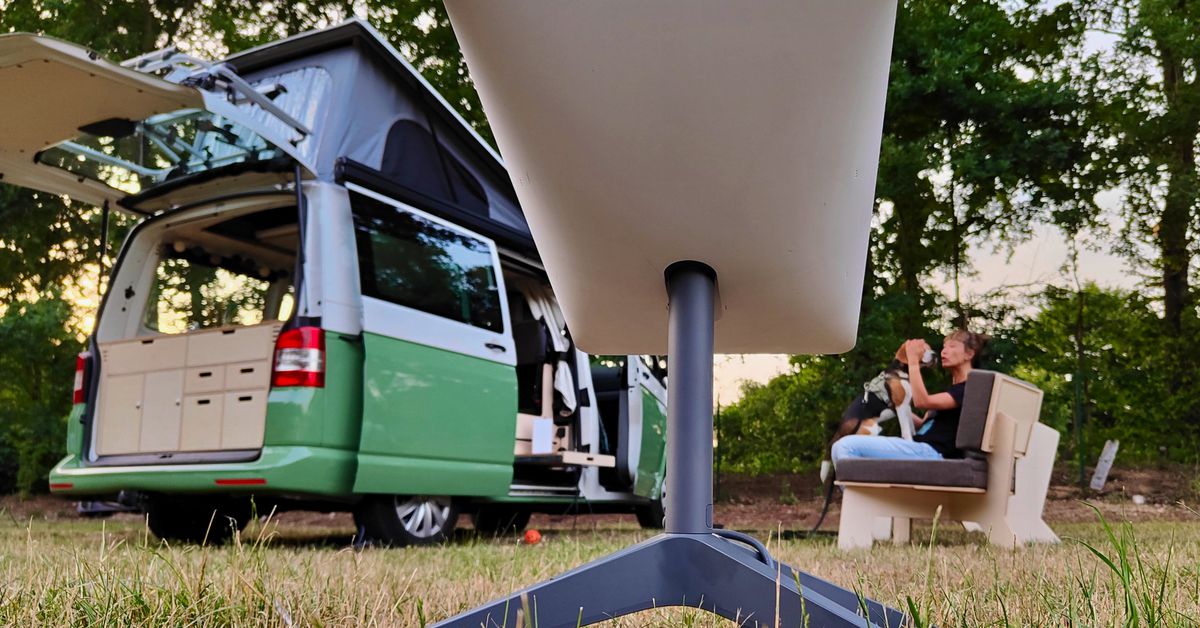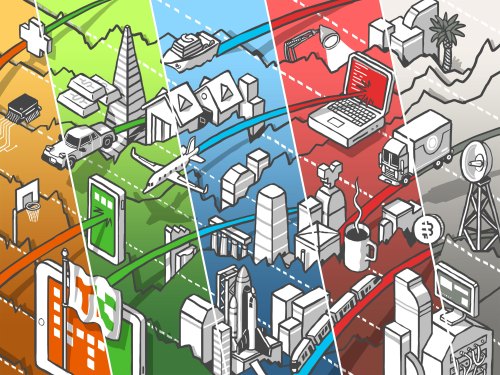The European Union (EU) has signed a significant deal for its IRIS² (Infrastructure for Resilience, Interconnectivity and Security by Satellite) constellation of 290 communication satellites that will operate in both medium and low Earth orbit. This ambitious project aims to provide secure connectivity to governmental users, private companies, and European citizens, as well as bring high-speed internet to areas with limited or no coverage.
A €10.6 Billion Deal Valued at $11 Billion
According to a report by The Financial Times, the public-private deal is valued at €10.6 billion ($11 billion). This massive investment is expected to come online by 2030 and marks a significant step towards establishing Europe’s presence in the space industry.
The IRIS² Constellation: A Game-Changer for Secure Connectivity
The IRIS² constellation will consist of 264 spacecraft in low Earth orbit (LEO) and 18 in medium Earth orbit (MEO). This innovative design will enable secure communication between satellites, ensuring that data transmission remains quick and uninterrupted. The EU claims that the interlinked satellites will "enable the constellation to communicate securely and quickly and remain constantly connected without needing thousands of satellites." In comparison, SpaceX has launched over 7,000 low Earth satellites since 2018 as part of its Starlink network.
Why IRIS² Matters for Europe
The IRIS² project holds significant importance for European citizens and industries. By providing secure connectivity to remote areas, the constellation will bridge the digital divide and promote economic growth. The EU highlights that this cutting-edge technology will also enhance strategic autonomy by protecting critical infrastructures from potential cyber threats.
SpaceRISE Consortium Takes the Lead
The development, deployment, and operation of the IRIS² constellation have been entrusted to SpaceRISE – a consortium led by European satellite network operators SES, Eutelsat, and Hispasat. The group is supported by key players in the space industry, including Airbus and Deutsche Telekom. This partnership demonstrates the power of public-private collaboration in driving innovation and delivering tangible benefits for all Europeans.
Henna Virkkunen’s Vision
Executive Vice-President for Tech Sovereignty, Security and Democracy Henna Virkkunen expressed her enthusiasm for this ambitious project: "This cutting-edge constellation will protect our critical infrastructures, connect our most remote areas and increase Europe’s strategic autonomy. By partnering with the SpaceRISE consortium, we are demonstrating the power of public-private collaboration to drive innovation and deliver tangible benefits to all Europeans."
A Challenge to Starlink’s Dominance
In September, FCC Chair Jessica Rosenworcel called for increased competition in the space industry, stating that "our economy doesn’t benefit from monopolies… every communications market that has competition is strong, we see lower prices and more innovation, and honestly, space should be no exception." The IRIS² constellation serves as a direct response to Starlink’s dominance in the satellite internet market.
What Does This Mean for Europe’s Space Industry?
The signing of this deal signifies a significant leap forward for Europe’s space industry. With its own constellation, Europe will no longer rely on external providers and can ensure secure connectivity for its citizens and industries. The IRIS² project demonstrates the EU’s commitment to innovation and strategic autonomy in the face of global competition.
Key Takeaways
- The EU has signed a deal worth €10.6 billion ($11 billion) for its IRIS² constellation.
- The constellation will consist of 264 satellites in LEO and 18 in MEO, enabling secure communication between interlinked satellites.
- The project aims to provide high-speed internet to areas with limited or no coverage, enhancing strategic autonomy for Europe.
- SpaceRISE consortium takes the lead in developing, deploying, and operating the IRIS² constellation.
Conclusion
The EU’s signing of the deal for its IRIS² constellation marks a crucial step towards establishing Europe’s presence in the space industry. This ambitious project will provide secure connectivity to governmental users, private companies, and European citizens while promoting economic growth and strategic autonomy. As the competition heats up in the satellite internet market, the IRIS² constellation serves as a beacon of innovation for the EU and its partners.
Update
On December 17th, additional details were provided on the numbers of satellites in the constellation.
The world is witnessing an exciting development with the signing of the deal for the IRIS² constellation. This ambitious project not only promises to bridge the digital divide but also serves as a testament to Europe’s commitment to innovation and strategic autonomy.
As we look forward to the successful deployment and operation of this cutting-edge technology, it will be fascinating to see how it competes with other players in the market.









